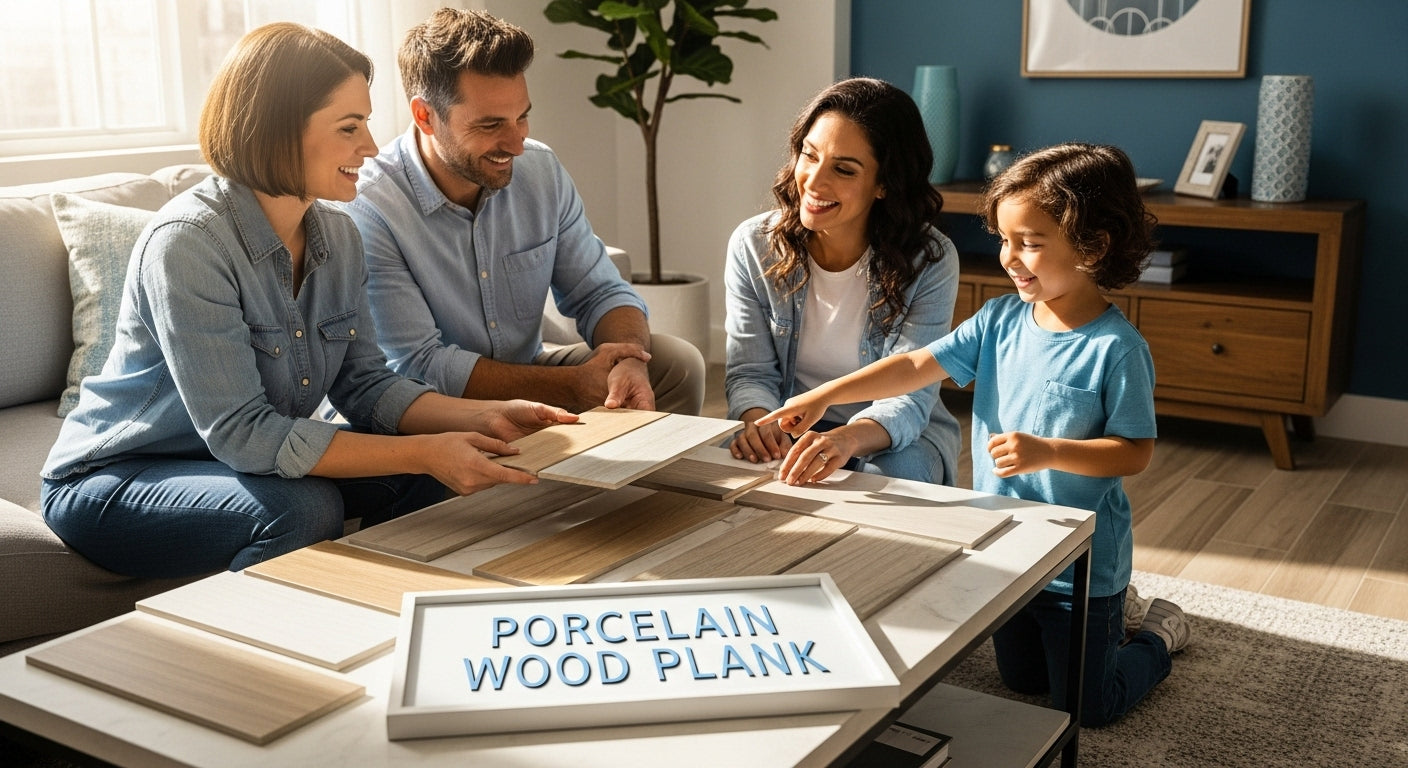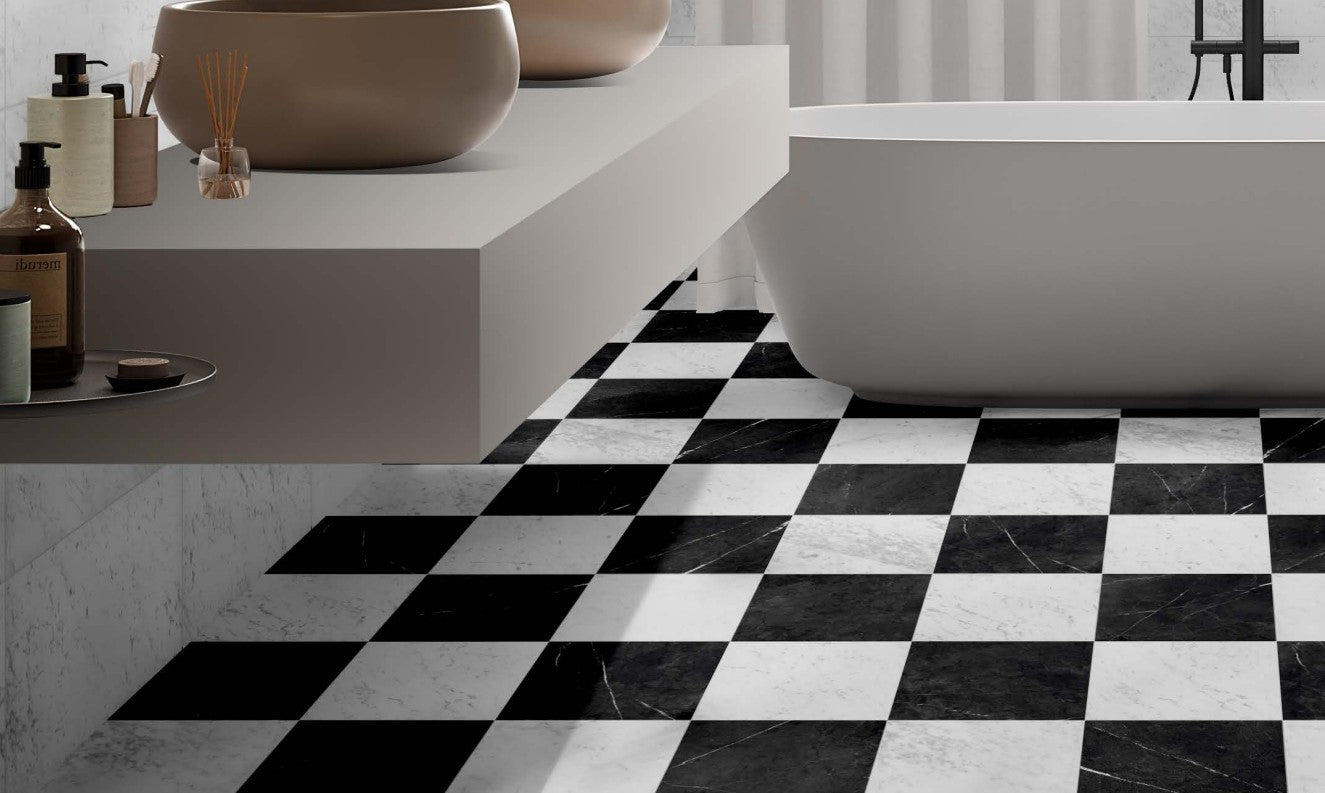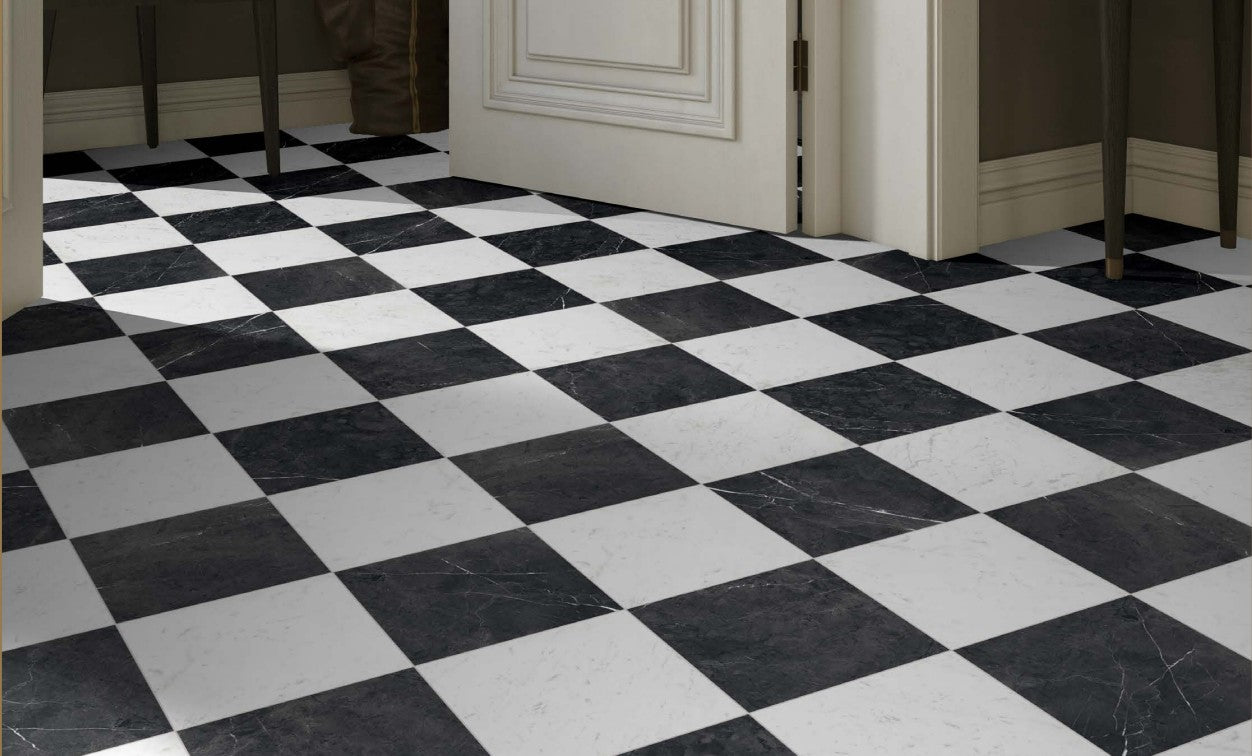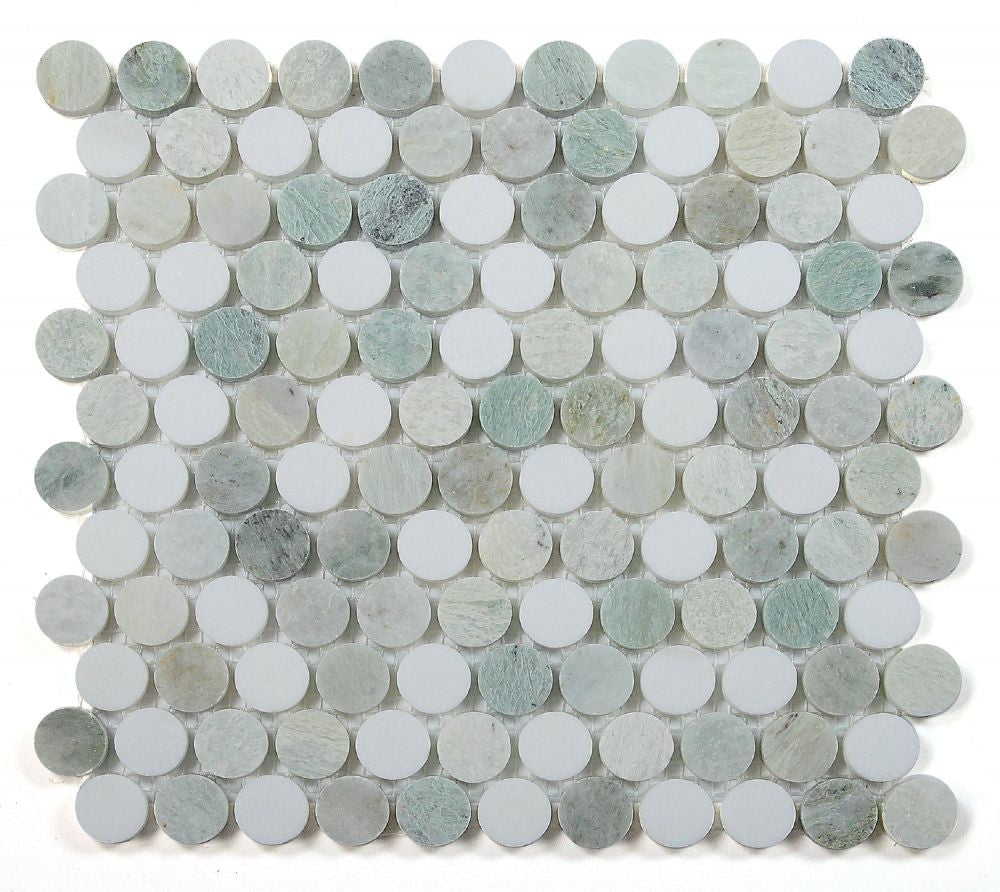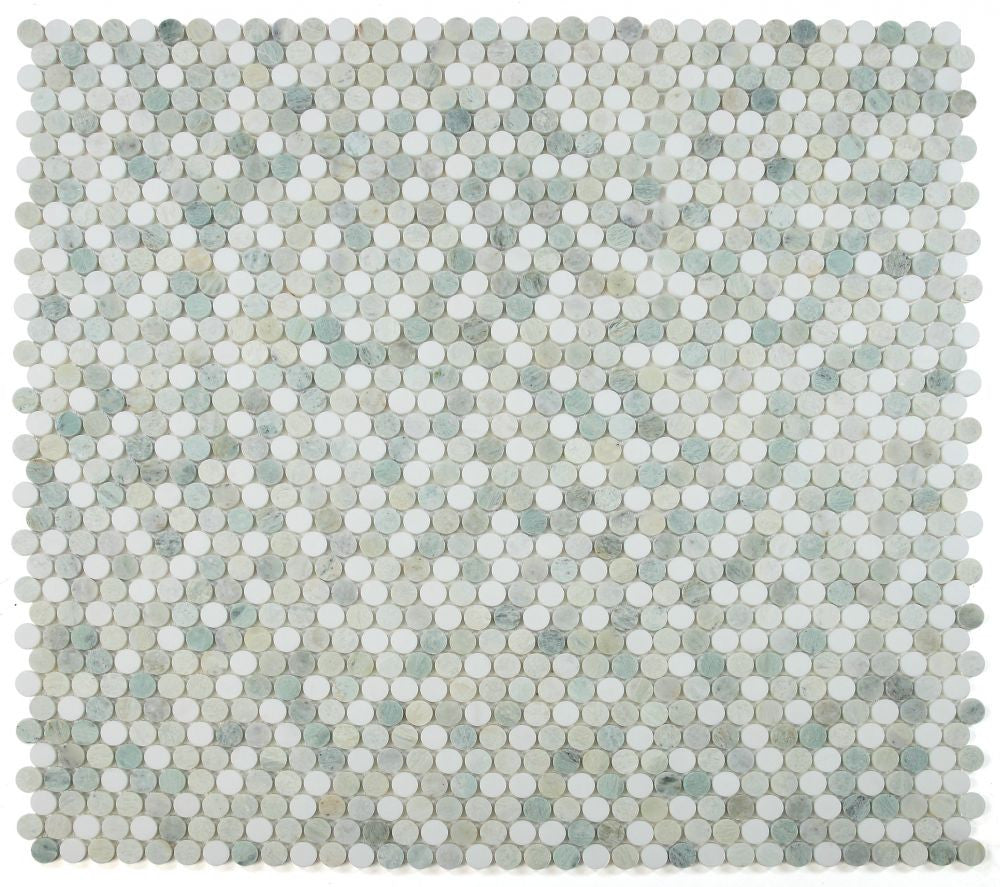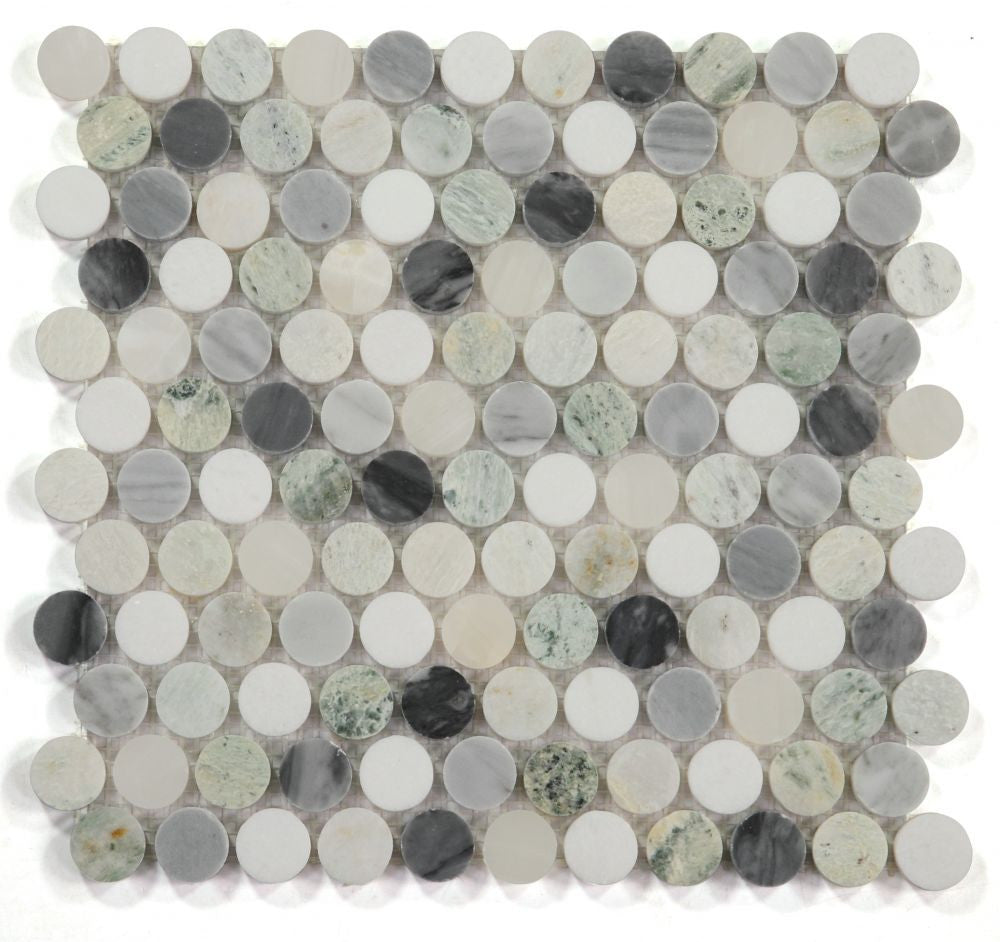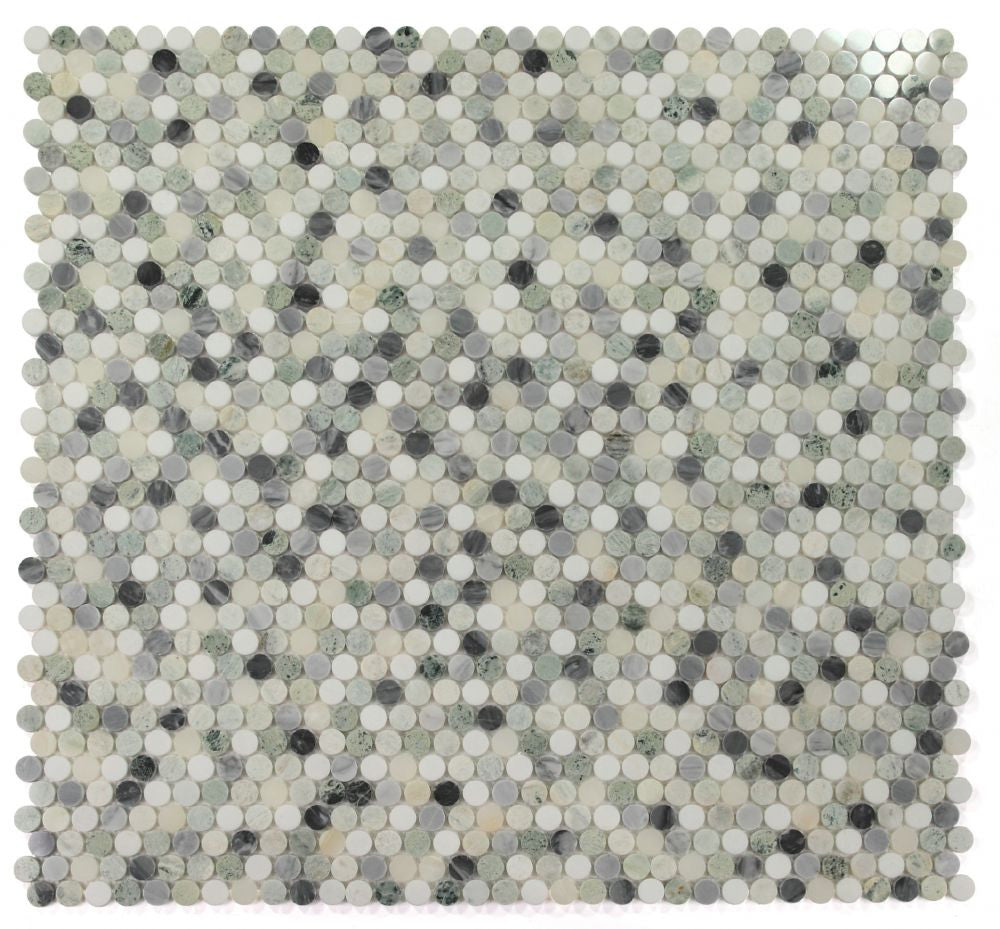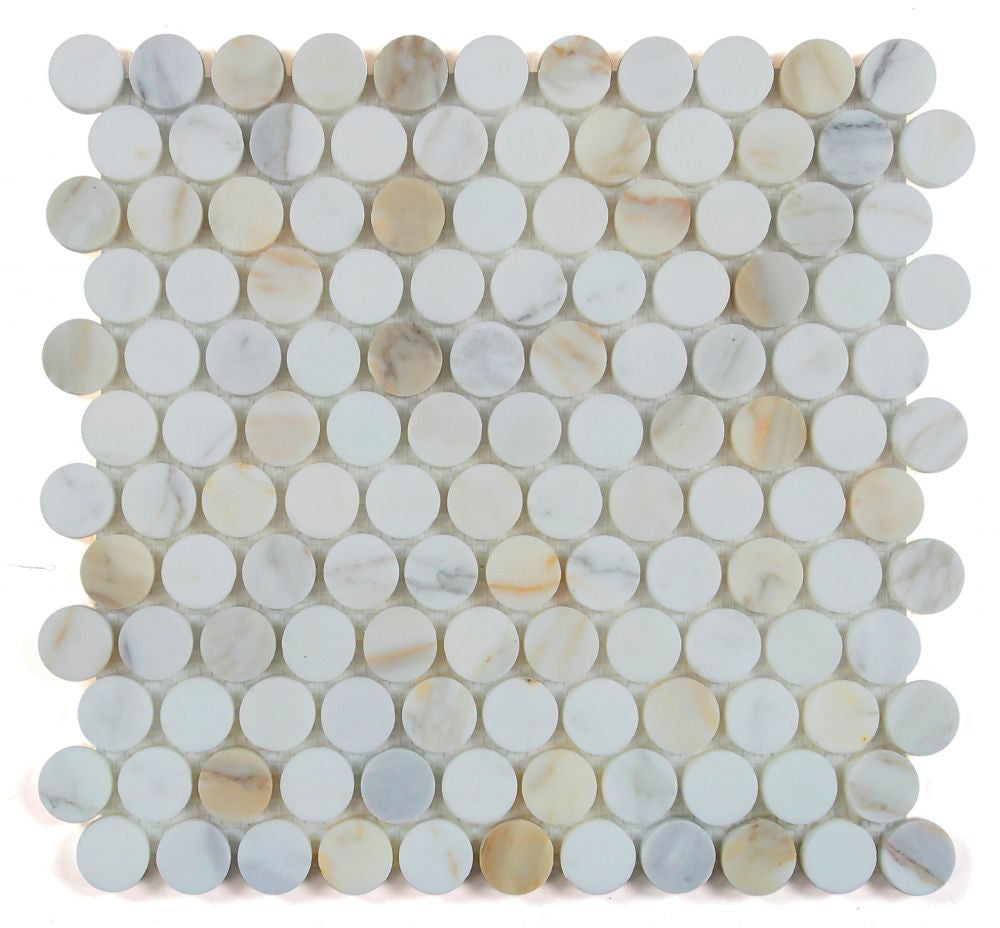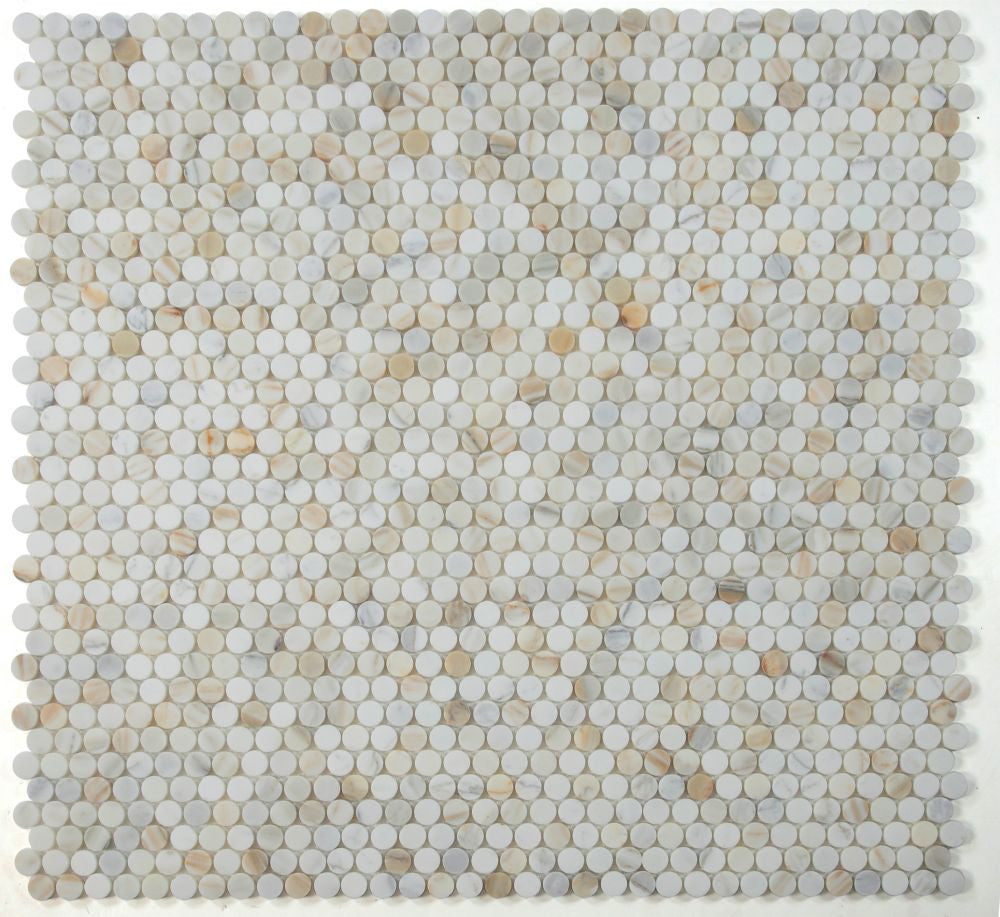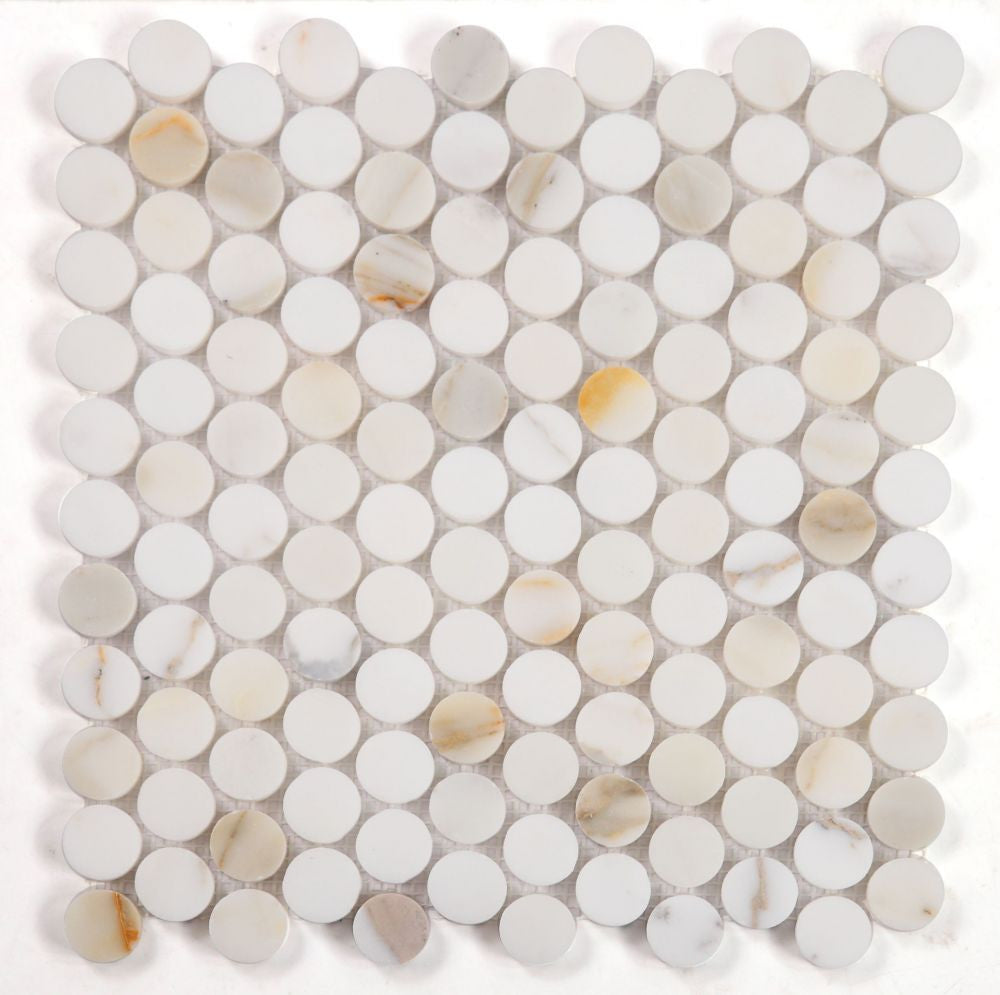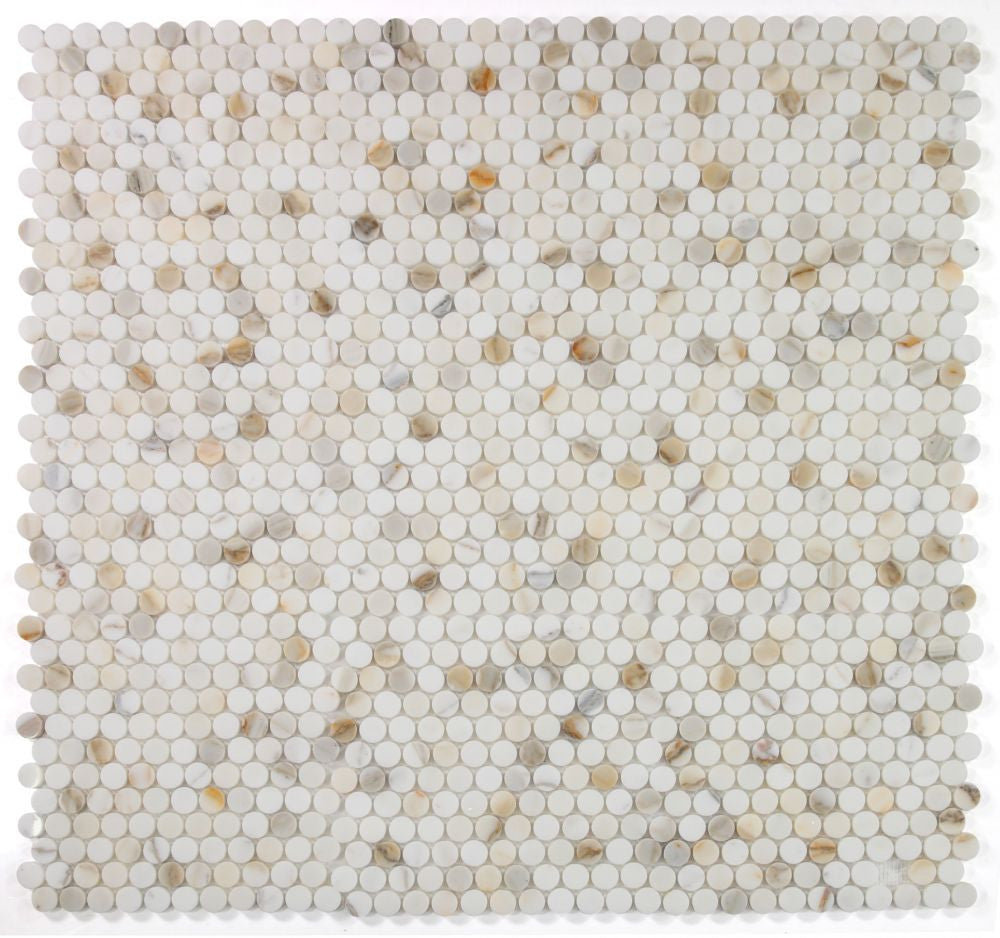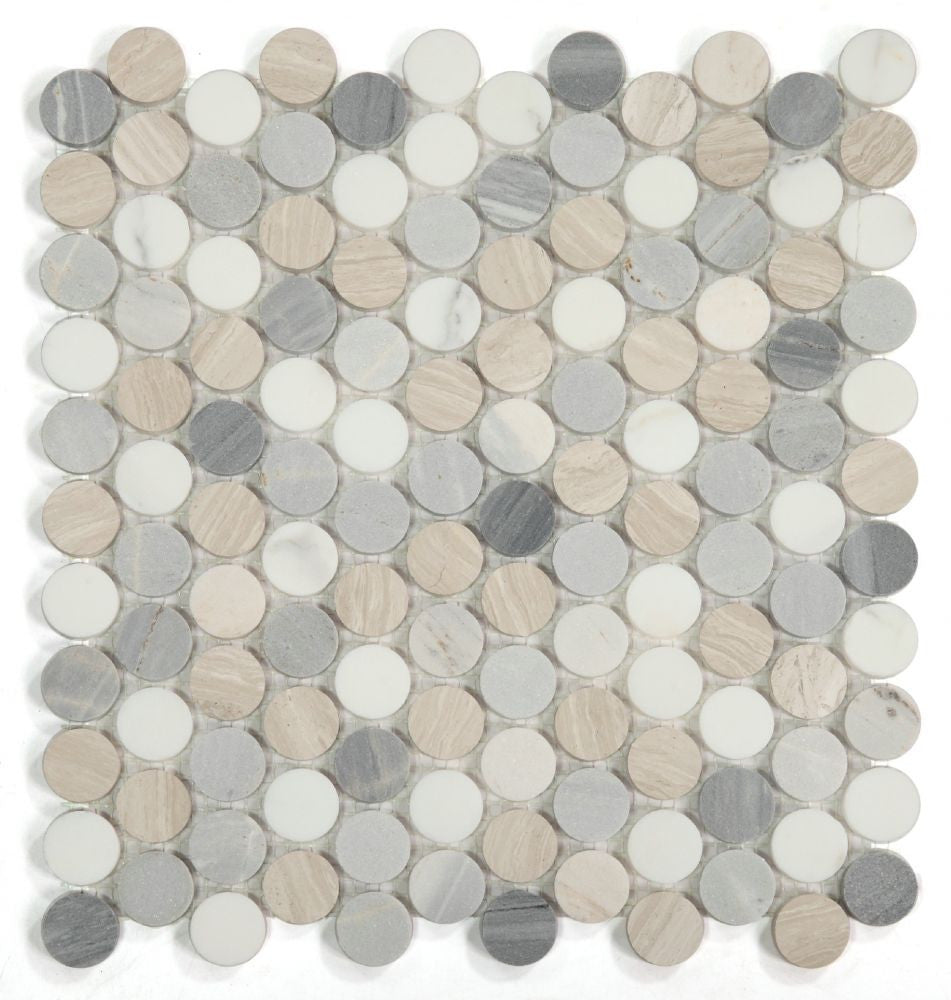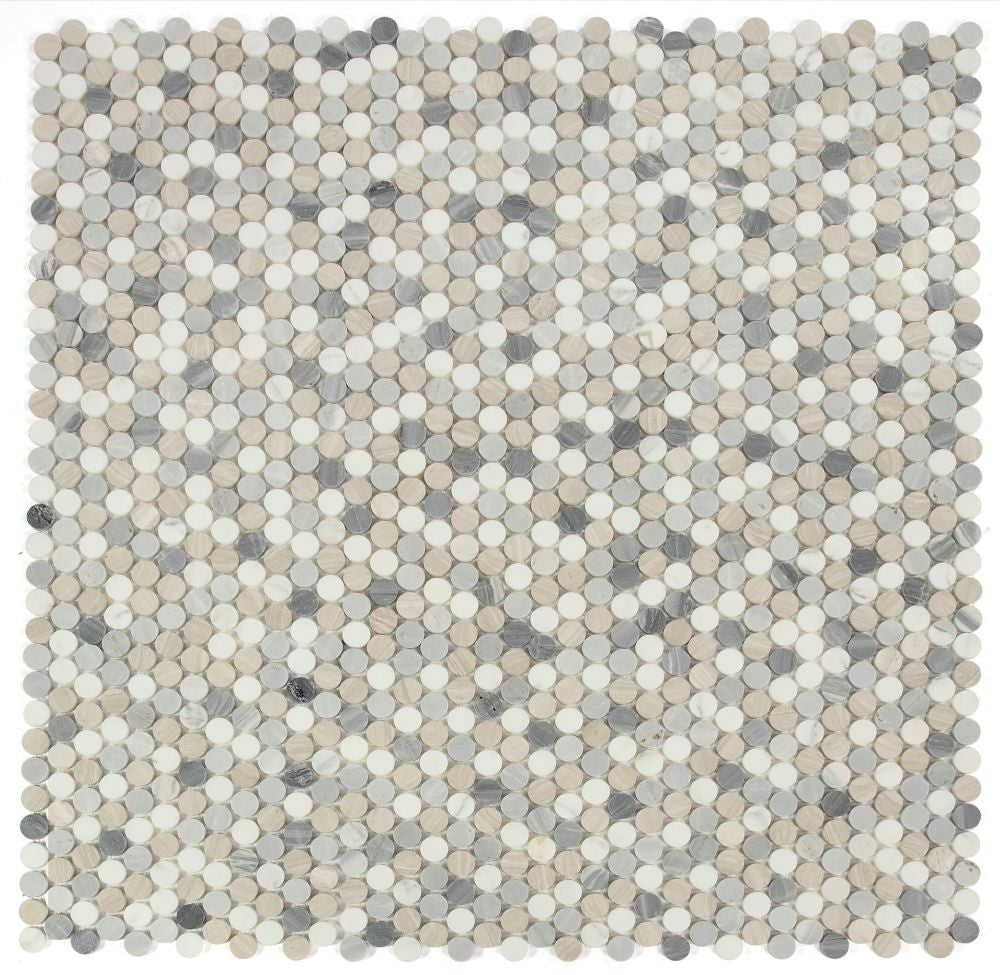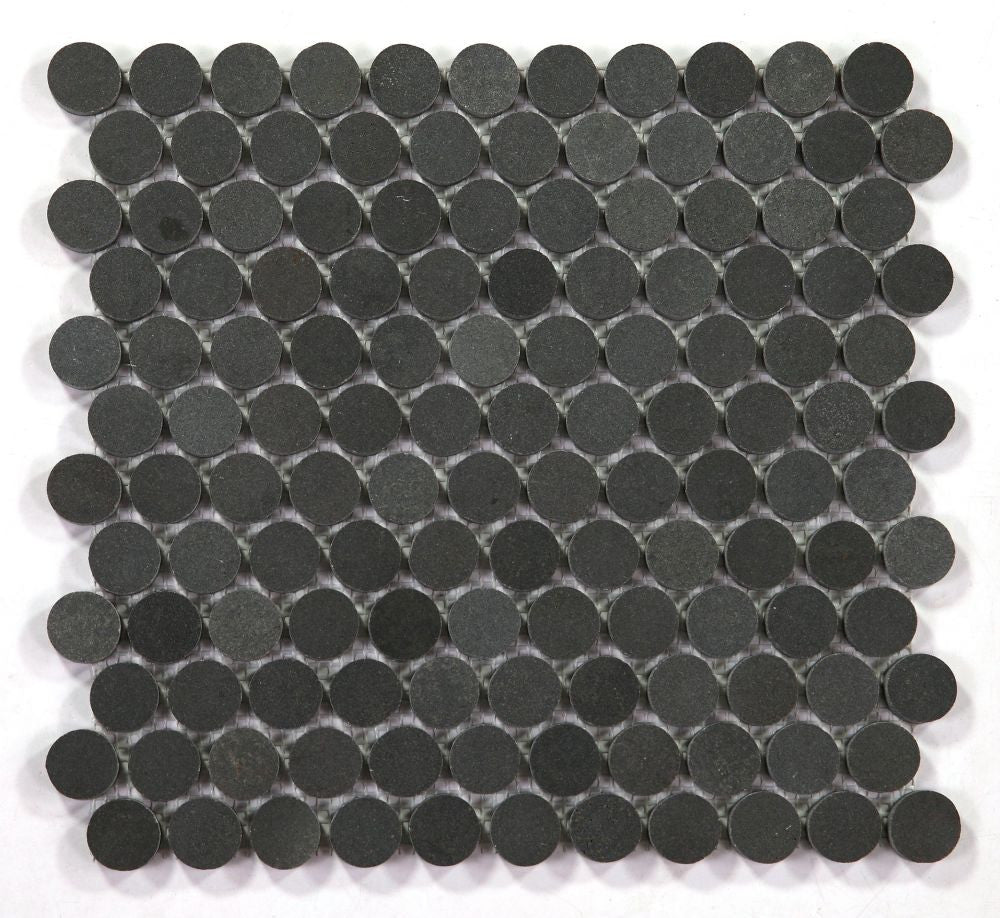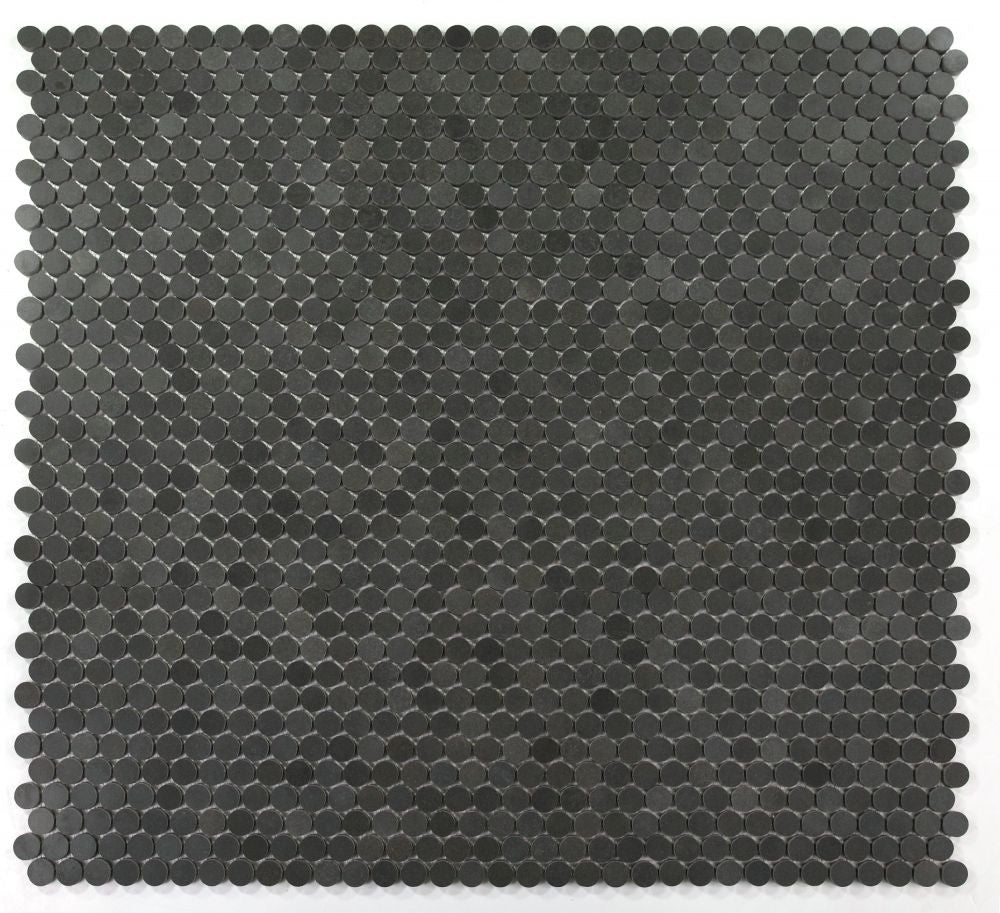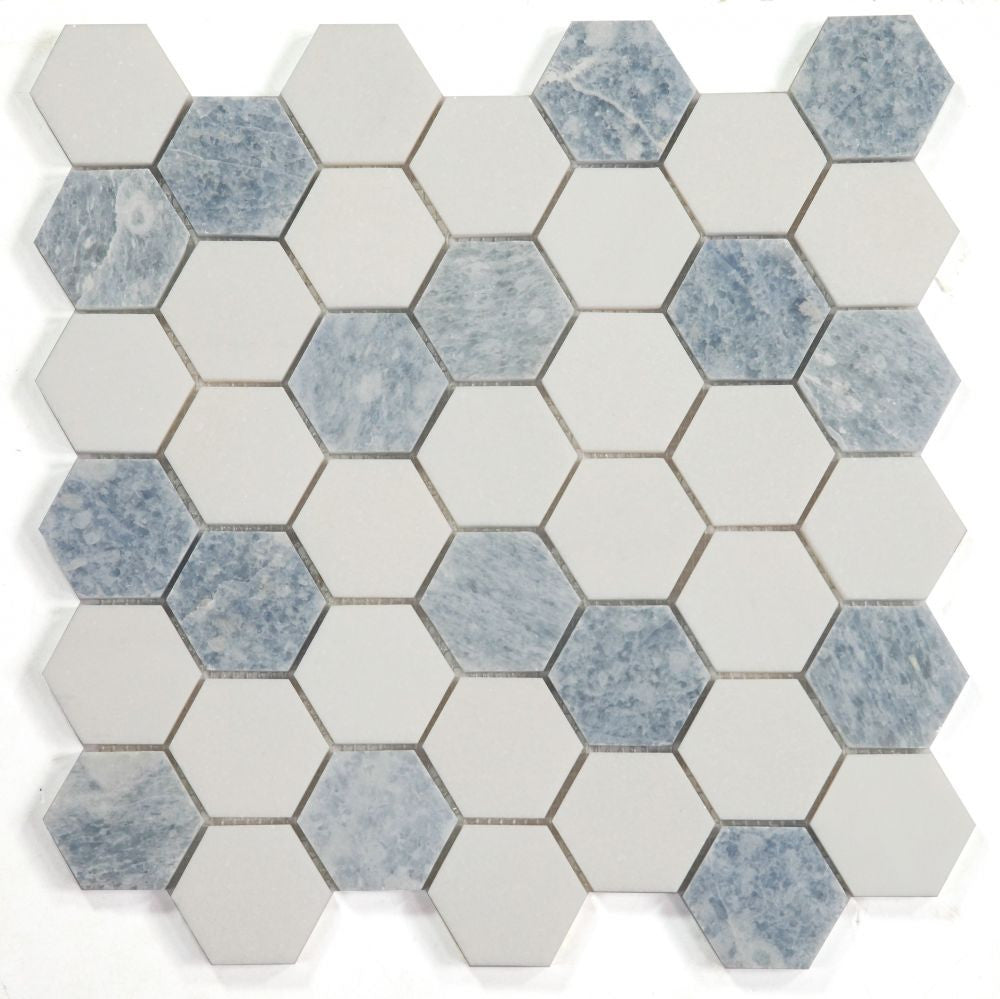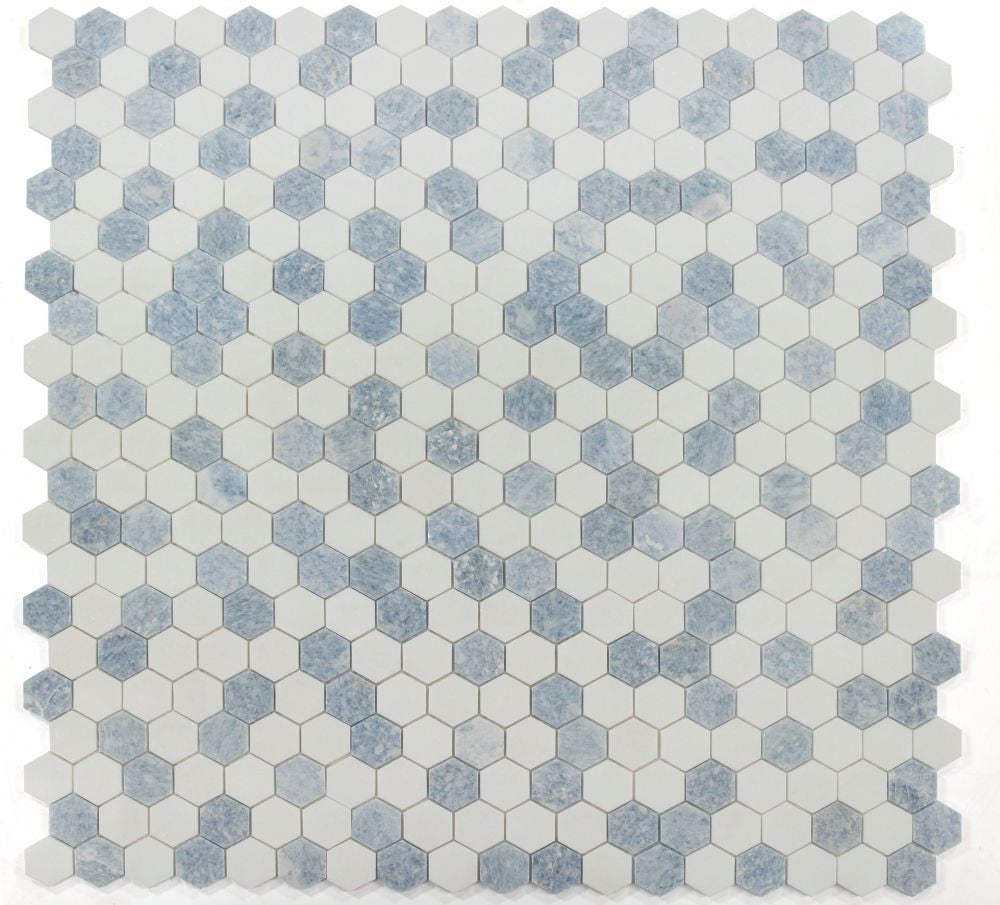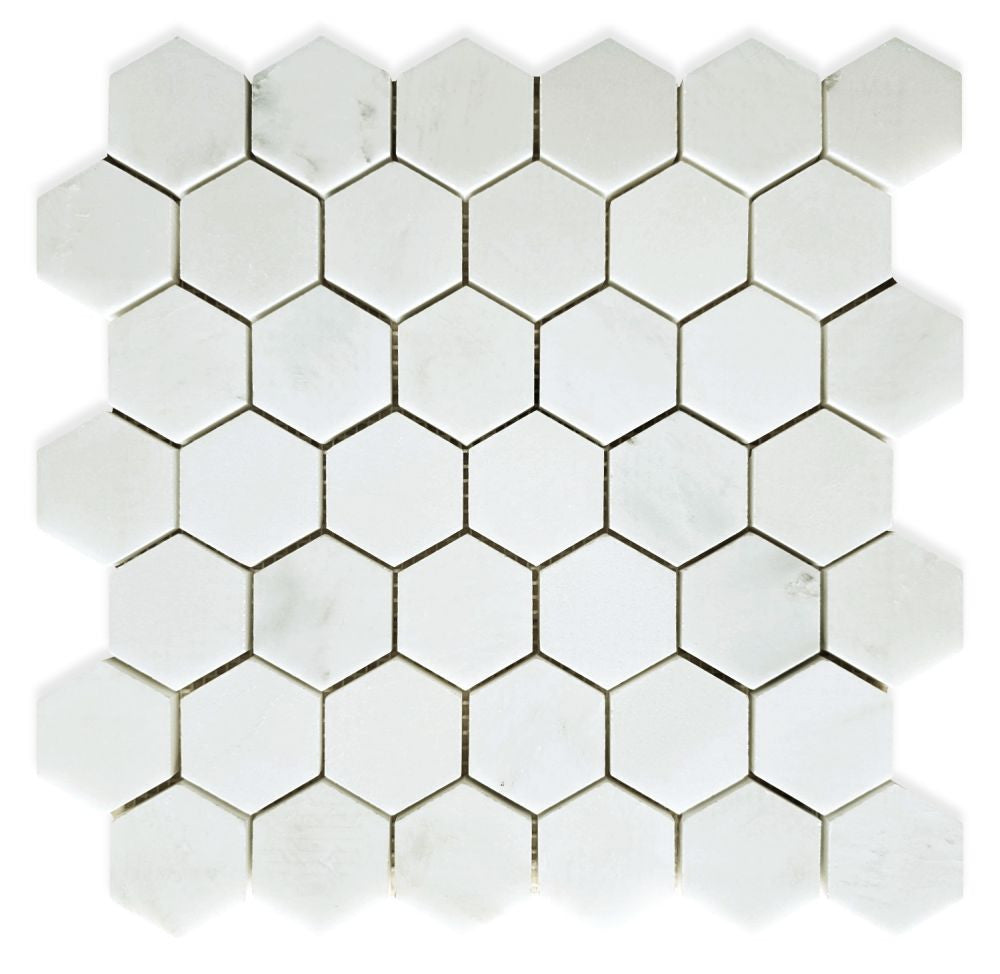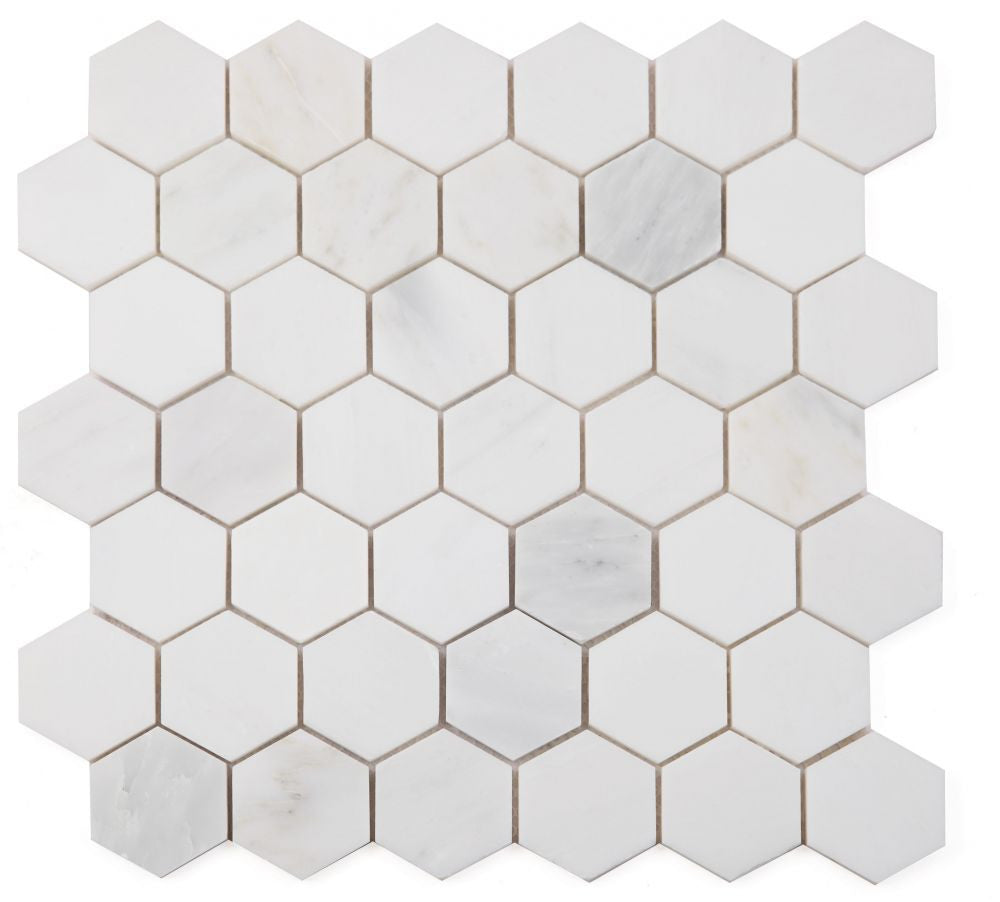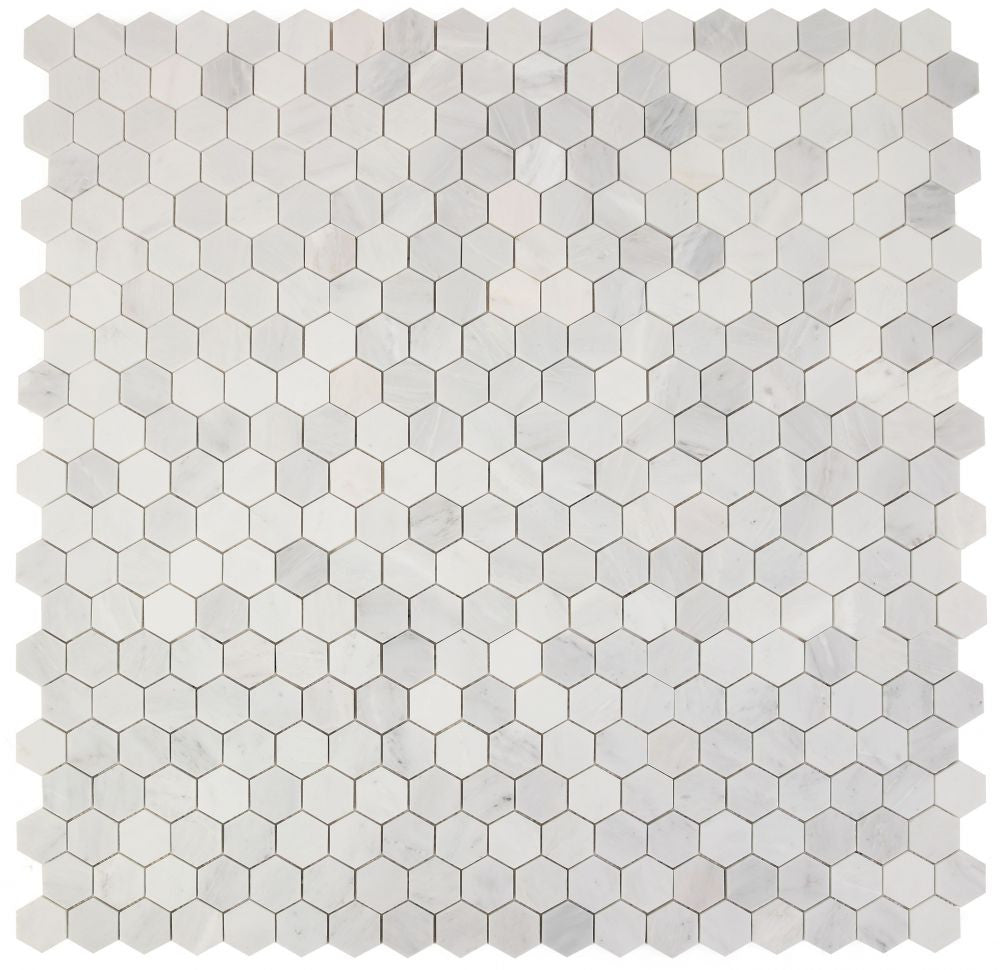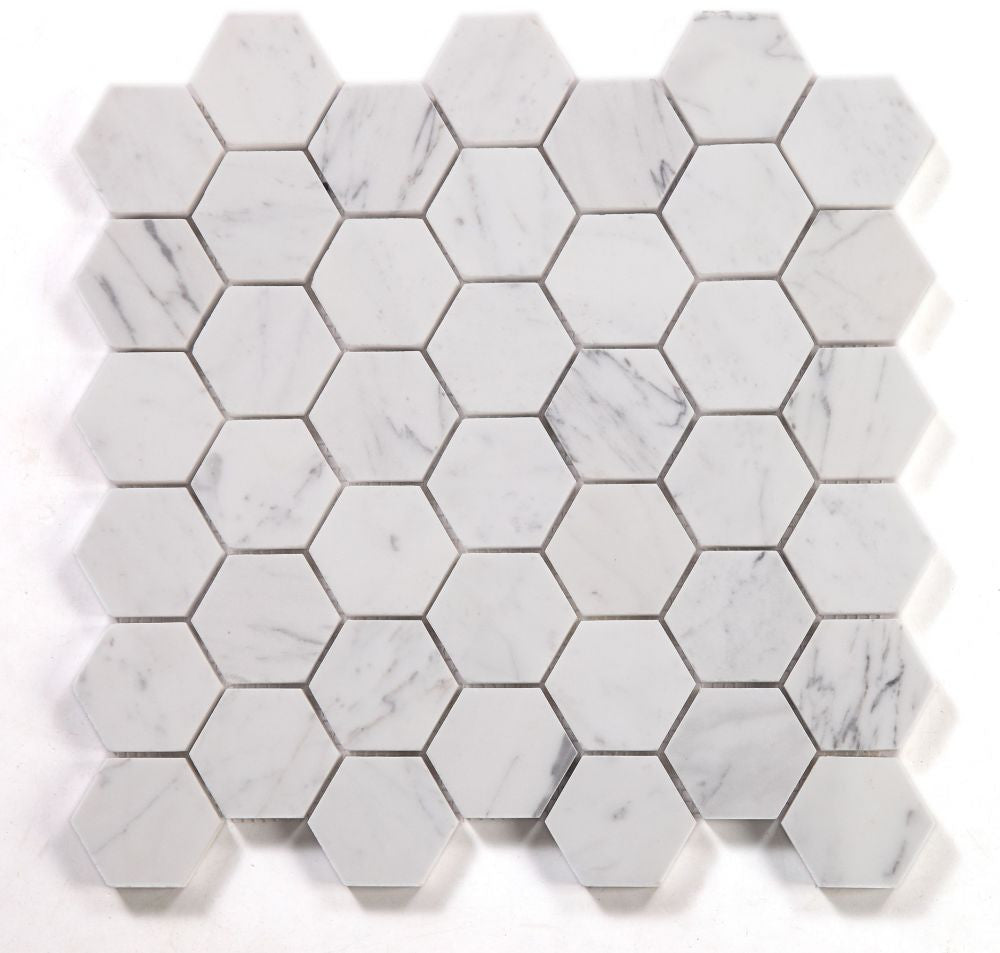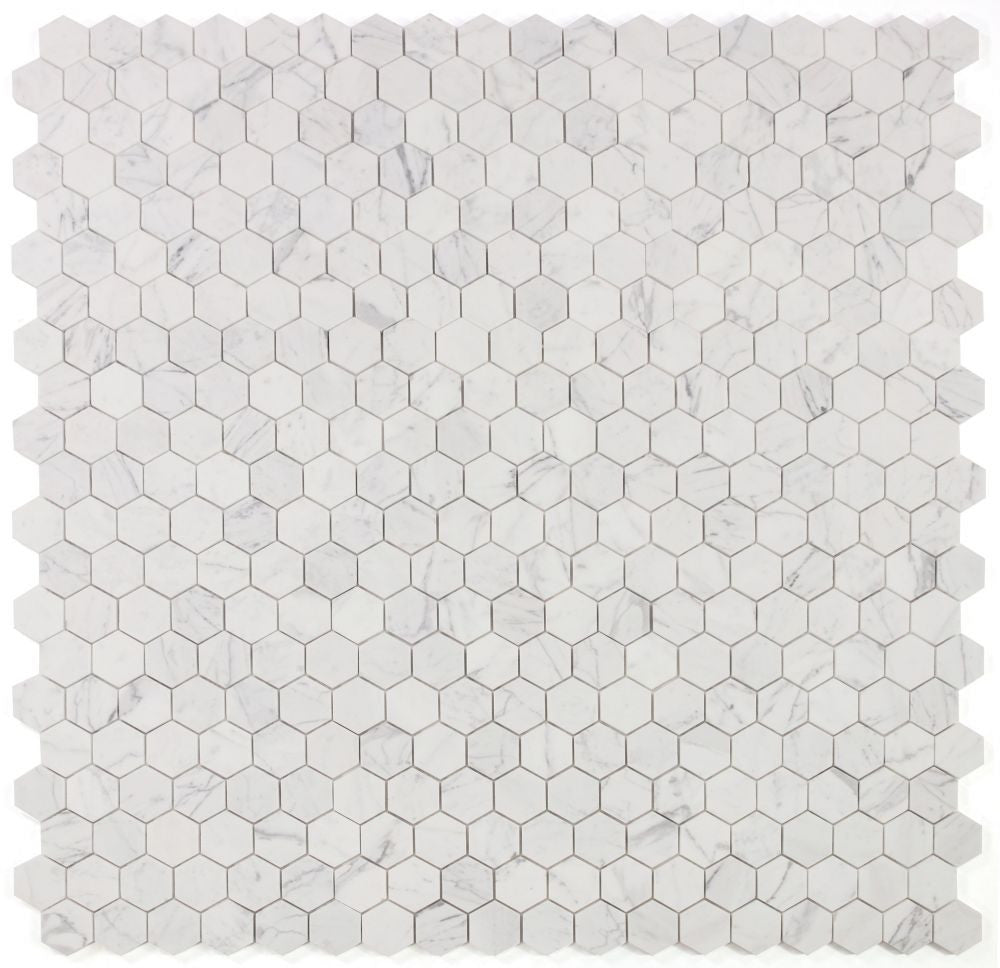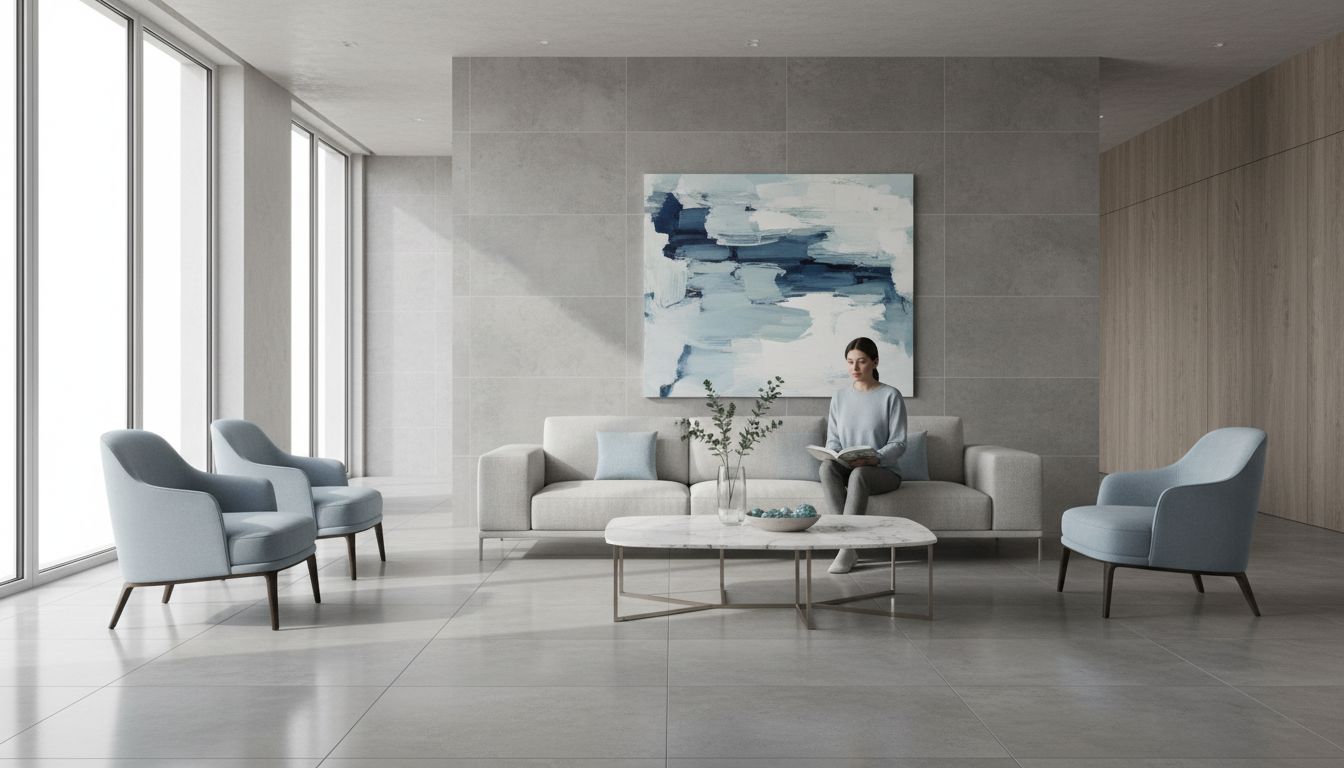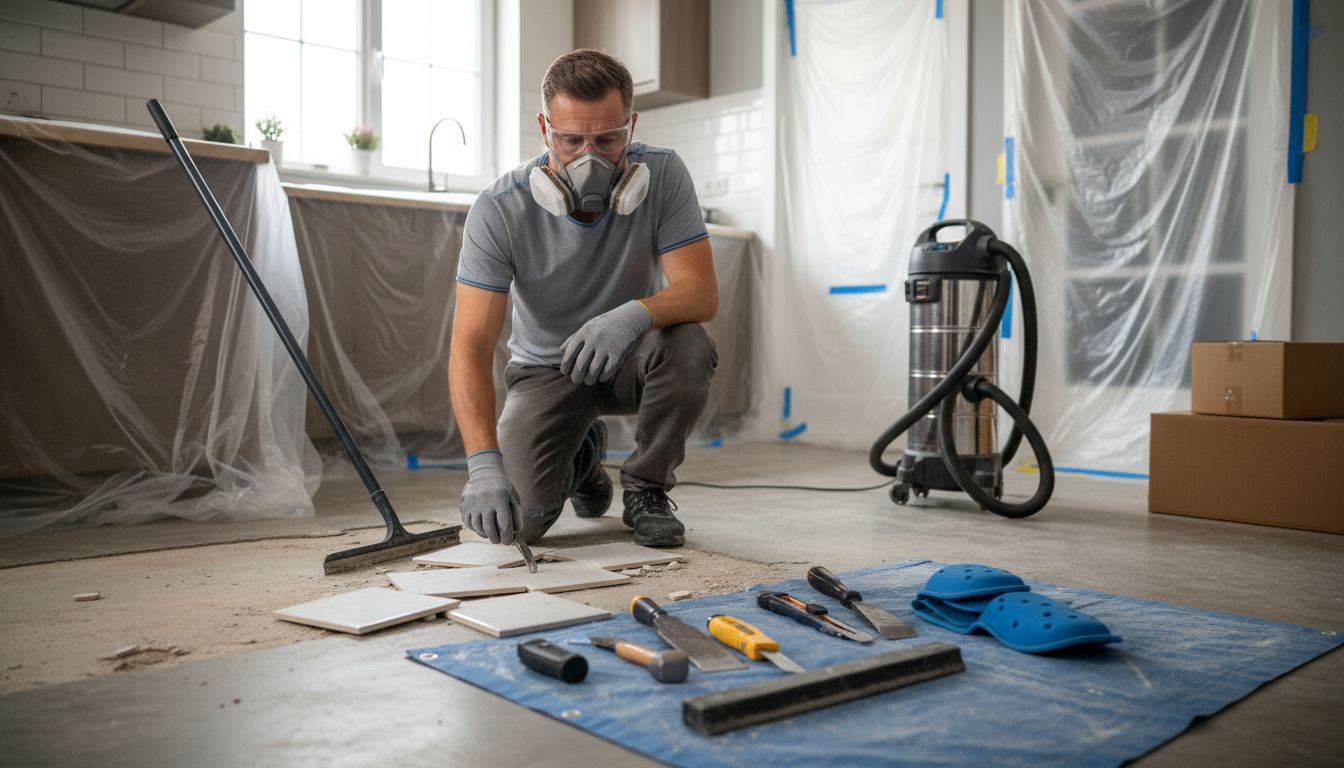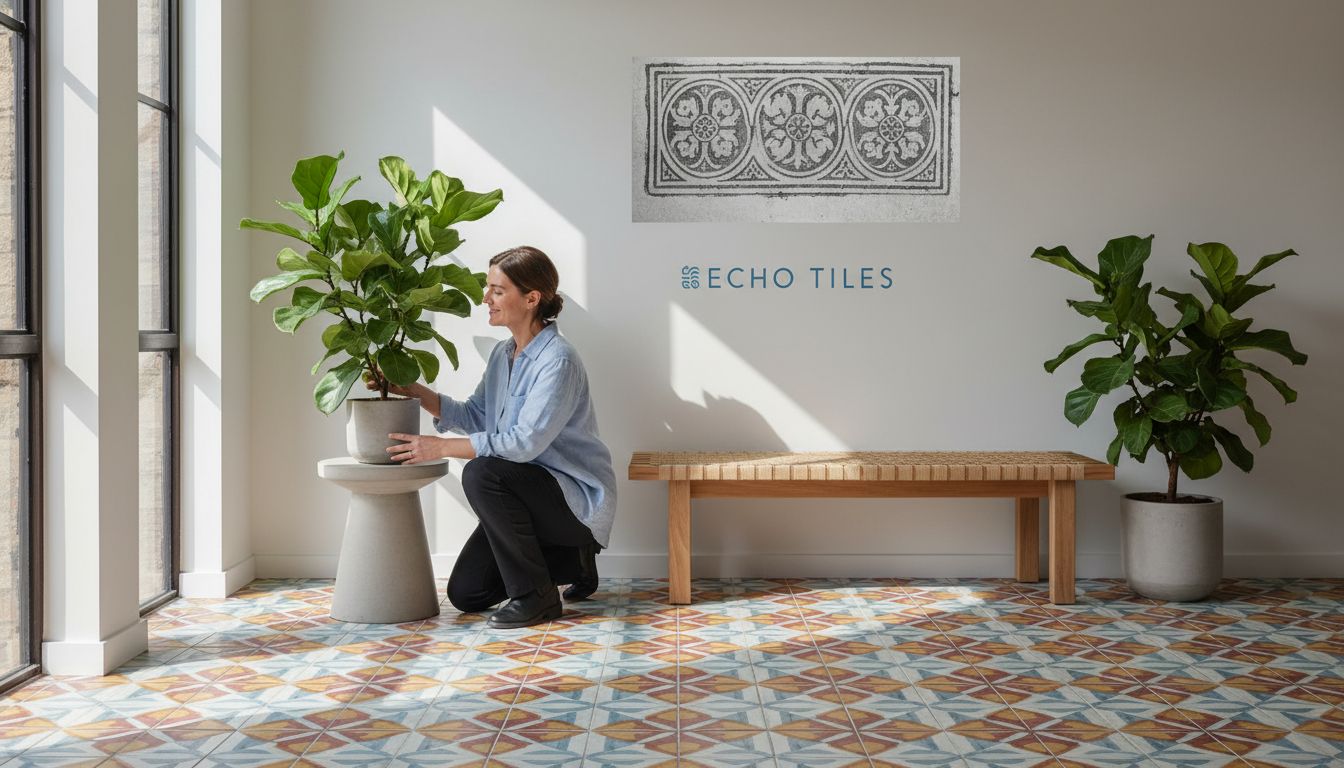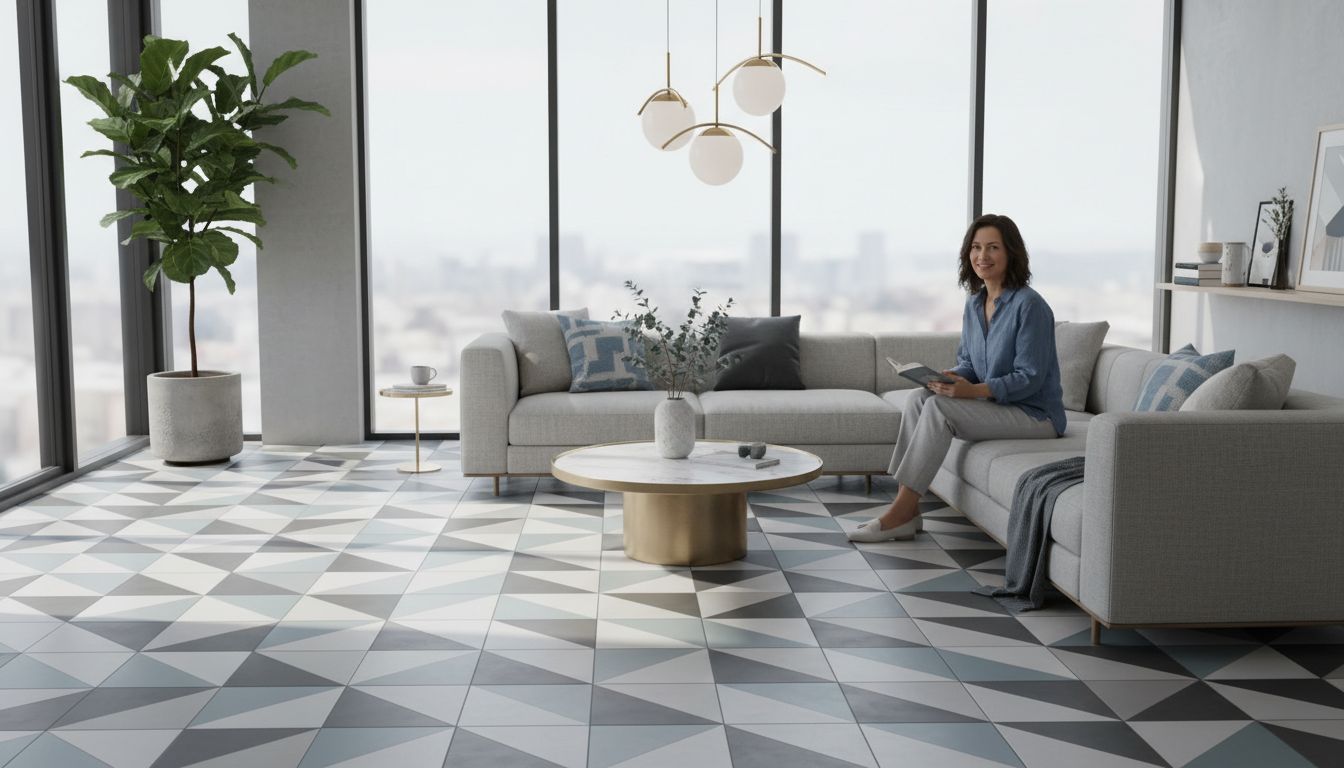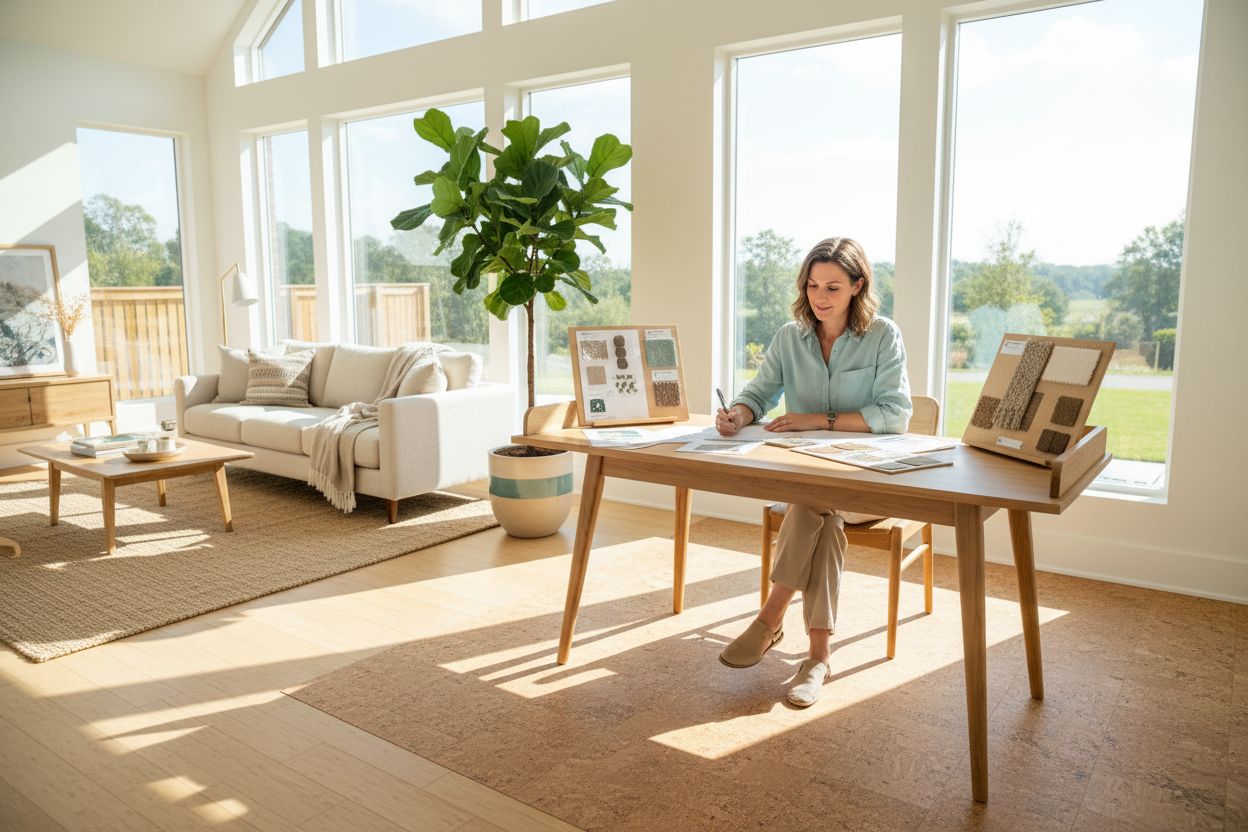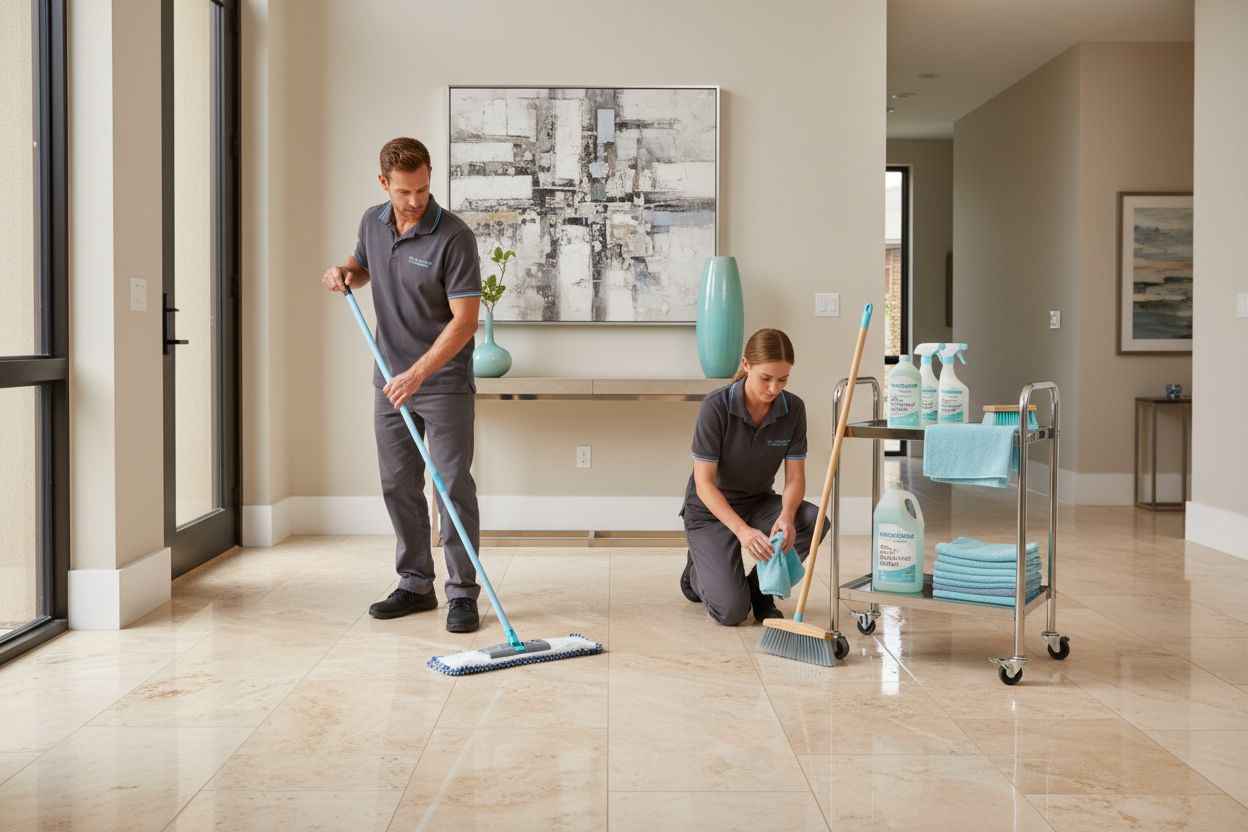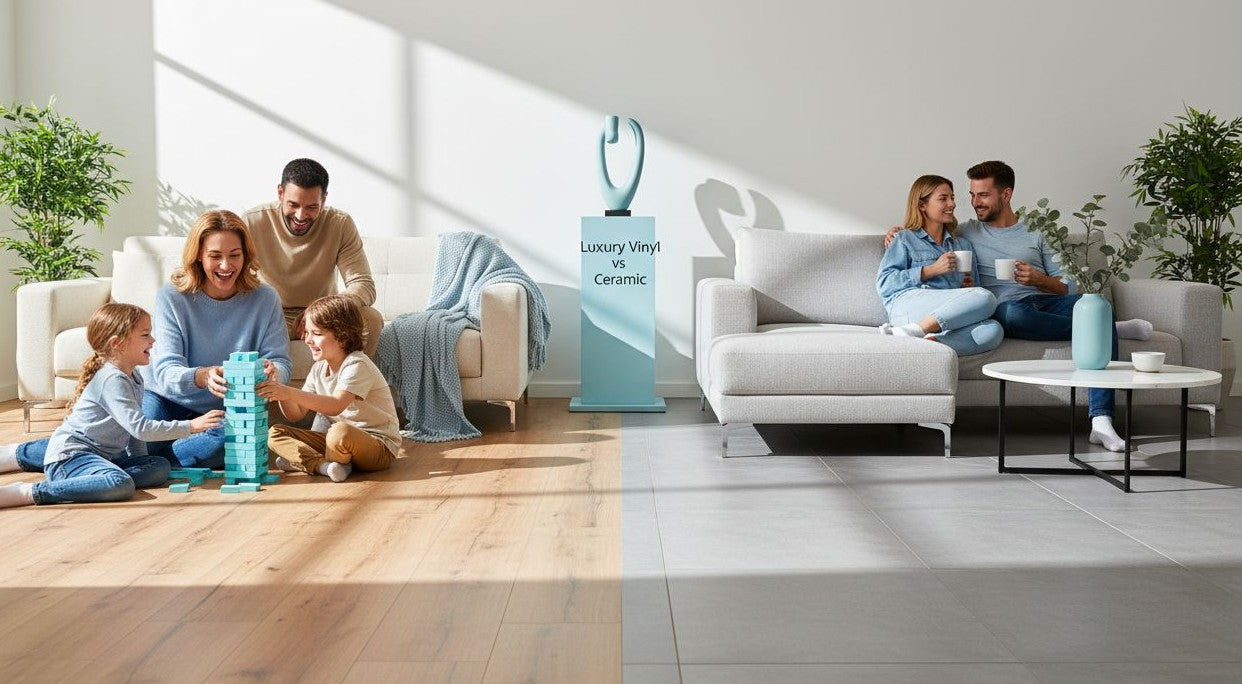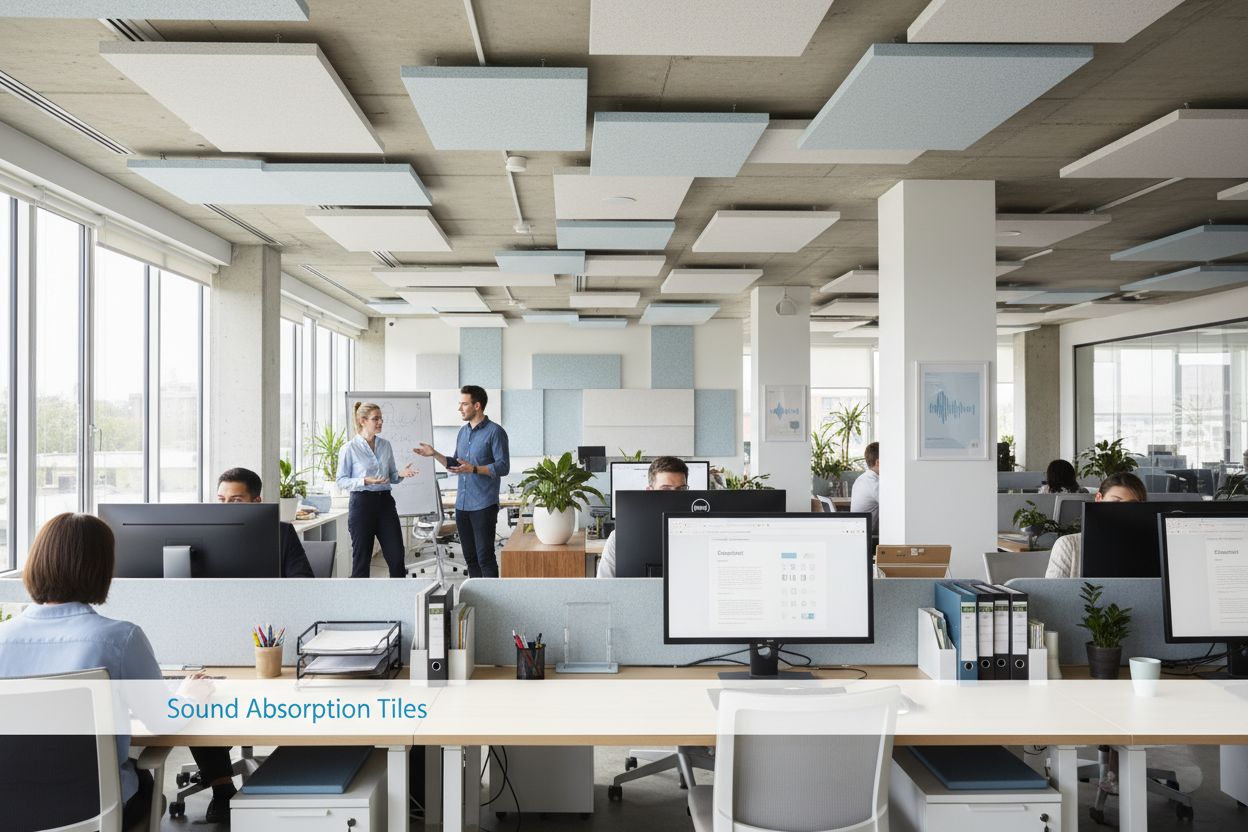Porcelain wood plank tiles look just like hardwood but with a twist. These tiles are fired at up to 2,500 degrees Fahrenheit—making them harder and more durable than most natural woods. Surprised? Most people think real wood wins every time and yet these tiles do what wood simply cannot. Ready to find out why designers are swapping oak for porcelain and what makes this flooring trend so tough to beat?
Table of Contents
- What Are Porcelain Wood Plank Tiles?
- Why Choose Porcelain Wood Plank Tiles Over Traditional Wood?
- How Porcelain Wood Plank Tiles Are Made and Designed
- Key Features and Benefits of Using Porcelain Wood Plank Tiles
- Real-World Applications: Where to Use Porcelain Wood Plank Tiles
Quick Summary
| Takeaway | Explanation |
|---|---|
| Exceptional durability for high-traffic areas | Porcelain wood plank tiles are resistant to scratches and moisture, making them ideal for rooms like kitchens and bathrooms. |
| No ongoing maintenance costs | Unlike traditional wood, these tiles don’t require refinishing or sealing, leading to long-term financial savings. |
| Versatile design options available | Manufacturers can replicate various wood species and finishes, allowing for customized aesthetics without sacrificing performance. |
| Suitable for indoor and outdoor use | Their environmental adaptability means they can be used in diverse settings, from homes to commercial spaces. |
| Easy to clean and hygienic | These tiles do not harbor allergens or bacteria, promoting a healthier living environment and are effortless to maintain. |
What Are Porcelain Wood Plank Tiles?
Porcelain wood plank tiles represent an innovative flooring solution that seamlessly combines the aesthetic appeal of natural wood with the exceptional durability of porcelain ceramics. These specialized tiles are engineered to mimic the appearance, texture, and warmth of hardwood while offering superior performance characteristics that traditional wood flooring cannot match.
The Manufacturing Process
Created through advanced digital printing technologies, porcelain wood plank tiles undergo a meticulous manufacturing process that transforms raw ceramic materials into stunning wood-like surfaces. According to research on ceramic technologies, manufacturers use high-resolution digital inkjet printing to capture intricate wood grain patterns and textures with remarkable precision. The tiles are kiln-fired at extremely high temperatures, typically between 2,200 to 2,500 degrees Fahrenheit, which creates an incredibly dense and robust material.
Key Characteristics
Porcelain wood plank tiles offer a remarkable blend of aesthetic and functional benefits that set them apart from traditional flooring options:
- Exceptional Durability: Resistant to scratches, moisture, and heavy foot traffic
- Low Maintenance: Easy to clean and does not require periodic sealing or refinishing
- Versatile Design: Available in numerous wood-like finishes and color variations
- Environmental Adaptability: Suitable for indoor and outdoor applications
For homeowners seeking to read more about tile material comparisons, these innovative tiles represent a sophisticated alternative to traditional wood flooring, combining aesthetic elegance with unparalleled performance characteristics.
This table summarizes the main functional and design advantages of porcelain wood plank tiles as highlighted in the guide, allowing for a quick overview of their features and benefits.
| Feature | Description |
|---|---|
| Exceptional Durability | Withstands scratches, moisture, and heavy traffic without damage |
| Low Maintenance | Easy to clean, does not require refinishing or sealing |
| Moisture Resistance | Prevents warping, rotting, and water damage |
| Versatile Appearance | Available in various wood-like finishes, grains, colors, and textures |
| Environmental Adaptability | Suitable for both indoor and outdoor environments |
| Hygienic Surface | Does not harbor allergens or bacteria; promotes healthy living spaces |
Why Choose Porcelain Wood Plank Tiles Over Traditional Wood?
Homeowners and designers increasingly prefer porcelain wood plank tiles as a sophisticated alternative to traditional hardwood flooring. These innovative tiles deliver aesthetic elegance while addressing many limitations inherent in natural wood materials.
Performance and Durability Advantages
Porcelain wood plank tiles dramatically outperform traditional hardwood in critical areas of home performance.
The following table compares the key differences between porcelain wood plank tiles and traditional wood flooring, summarizing the benefits and limitations already discussed in the article.
| Feature | Porcelain Wood Plank Tiles | Traditional Wood Flooring |
|---|---|---|
| Durability | Extremely hard; highly resistant to scratches, moisture, and dents | Susceptible to scratches, dents, and water damage |
| Maintenance | Low; no sealing, refinishing, or special cleaners needed | Requires periodic refinishing and sealing |
| Moisture Resistance | Impervious to water and does not warp | Can warp, stain, or rot when exposed to moisture |
| Design Options | Wide range of wood patterns, colors, and finishes | Limited to available wood species and stains |
| Installation Areas | Suitable for indoor and outdoor settings | Primarily for indoor dry environments |
| Hygiene | Does not harbor allergens or bacteria; easy to clean | Can trap dust, allergens, and may be harder to sanitize |
Cost and Maintenance Considerations
While initial installation costs for porcelain wood plank tiles might be comparable to hardwood, long-term financial benefits are substantial. Traditional wood flooring requires periodic refinishing, sealing, and can be easily damaged by moisture or heavy use. Porcelain tiles eliminate these ongoing maintenance expenses and potential replacement costs.
 Key advantages include:
Key advantages include:
- Zero Refinishing Costs: No sanding, staining, or resealing required
- Moisture Resistance: Prevents warping, rotting, and water damage
Design Flexibility and Sustainability
Modern manufacturing techniques allow porcelain wood plank tiles to replicate virtually any wood species, grain pattern, and color variation. This versatility enables homeowners to achieve their desired aesthetic without compromising on performance. For those interested in understanding different types of floor tiles, these tiles represent a cutting-edge solution that combines visual authenticity with exceptional functional properties.
How Porcelain Wood Plank Tiles Are Made and Designed
Porcelain wood plank tiles represent a sophisticated fusion of advanced manufacturing technologies and artistic design techniques, transforming raw ceramic materials into stunning floor coverings that mimic natural wood with remarkable precision.
Raw Material Selection and Preparation
The manufacturing process begins with carefully selected raw materials, primarily consisting of natural clay, feldspar, and silica. These base components are meticulously mixed and ground into a fine powder with specific particle sizes that ensure optimal density and performance. According to research from ceramic manufacturing experts, manufacturers increasingly focus on sustainable sourcing and waste reduction during material preparation.
Digital Printing and Surface Design
Advanced digital printing technologies play a crucial role in creating the wood-like appearance of porcelain tiles. High-resolution inkjet printers capture intricate wood grain patterns, knots, and texture variations with exceptional detail. The printing process involves multiple layers of ceramic pigments applied with microscopic precision, allowing manufacturers to replicate:
- Natural Wood Grain Patterns: Mimicking oak, maple, walnut, and other wood species
- Color Variations: Capturing subtle shade transitions and weathering effects
- Surface Textures: Reproducing smooth, rustic, or hand-scraped wood finishes
Firing and Finishing Techniques
The final stage involves firing the printed tiles in industrial kilns at extremely high temperatures, typically between 2,200 and 2,500 degrees Fahrenheit. This intense heat transforms the ceramic materials into an incredibly dense, hard surface that locks in the printed design. For those interested in understanding the differences between various tile types, this manufacturing process distinguishes porcelain wood plank tiles from other flooring materials through its combination of durability and aesthetic versatility.
Key Features and Benefits of Using Porcelain Wood Plank Tiles
Porcelain wood plank tiles offer an extraordinary combination of aesthetic beauty and exceptional performance characteristics that make them a superior flooring solution for modern residential and commercial spaces.
Durability and Performance Advantages
These innovative tiles provide unparalleled structural integrity and resistance to environmental challenges. According to Consumer Reports, porcelain wood-look tiles excel in scenarios where traditional wood flooring would quickly deteriorate. Their remarkable durability stems from advanced manufacturing processes that create an incredibly dense and resilient surface.
Comprehensive Functional Benefits
Porcelain wood plank tiles deliver a range of practical advantages that extend far beyond traditional flooring materials. Homeowners and designers appreciate their comprehensive performance profile, which includes:
- Moisture Resistance: Prevents water damage, warping, and mold growth
- Scratch Protection: Maintains aesthetic appearance under heavy foot traffic
- Temperature Stability: Remains comfortable and dimensionally stable in various environmental conditions
- Hygienic Surface: Easy to clean and does not harbor allergens or bacteria
Design Versatility and Aesthetic Appeal
Beyond their exceptional functional properties, porcelain wood plank tiles offer unprecedented design flexibility. Manufacturers can replicate virtually every wood species, grain pattern, and color variation, enabling precise aesthetic customization. For those interested in exploring unique tile design options, these tiles represent a cutting-edge solution that bridges the gap between natural beauty and technological innovation. The ability to achieve the warmth of wood with the performance of ceramic makes porcelain wood plank tiles a truly transformative flooring choice.
Real-World Applications: Where to Use Porcelain Wood Plank Tiles
Porcelain wood plank tiles represent a versatile flooring solution that transcends traditional design boundaries, offering exceptional performance across diverse residential, commercial, and specialized environments.
Residential Interior Applications
In home settings, these innovative tiles shine in multiple living spaces where durability and aesthetic appeal are paramount. Kitchens, bathrooms, living rooms, and entryways benefit dramatically from porcelain wood plank tiles’ unique characteristics. Their water-resistant properties make them particularly valuable in moisture-prone areas, eliminating concerns about warping, staining, or structural degradation that plague traditional hardwood flooring.
Commercial and High-Traffic Environments
Beyond residential use, porcelain wood plank tiles excel in demanding commercial settings. According to research on floor surface materials, these tiles offer remarkable performance in spaces experiencing intense foot traffic. Ideal applications include:
- Retail Spaces: Maintaining aesthetic appeal under constant customer movement
- Hospitality Settings: Restaurants, hotels, and conference centers requiring elegant, durable flooring
- Healthcare Facilities: Easy-to-clean surfaces that support stringent hygiene standards
- Educational Institutions: Withstanding heavy student and faculty traffic
Specialized and Innovative Installations
The adaptability of porcelain wood plank tiles extends to surprising and creative applications. Designers and architects are increasingly utilizing these tiles in outdoor patios, commercial lobbies, and even accent wall installations. For those seeking insights into high-traffic tile solutions, these tiles represent a cutting-edge flooring technology that combines aesthetic flexibility with unparalleled structural performance. **Their ability to mimic natural wood while offering superior durability makes them a transformative design element across multiple environments.
 **
**
Upgrade Your Space With Worry-Free Wood Look Tiles
Are you tired of the constant upkeep and limitations that come with real wood floors? Traditional hardwood is beautiful, but moisture, scratches, and daily family life can make it challenging to maintain that fresh look year after year. This article covered how porcelain wood plank tiles solve these problems, offering the charm of real wood with performance features built for busy spaces. Now you can have the authentic warmth of wood without sacrificing durability, easy cleaning, or design flexibility. Curious how you can bring this innovation into your home or project?
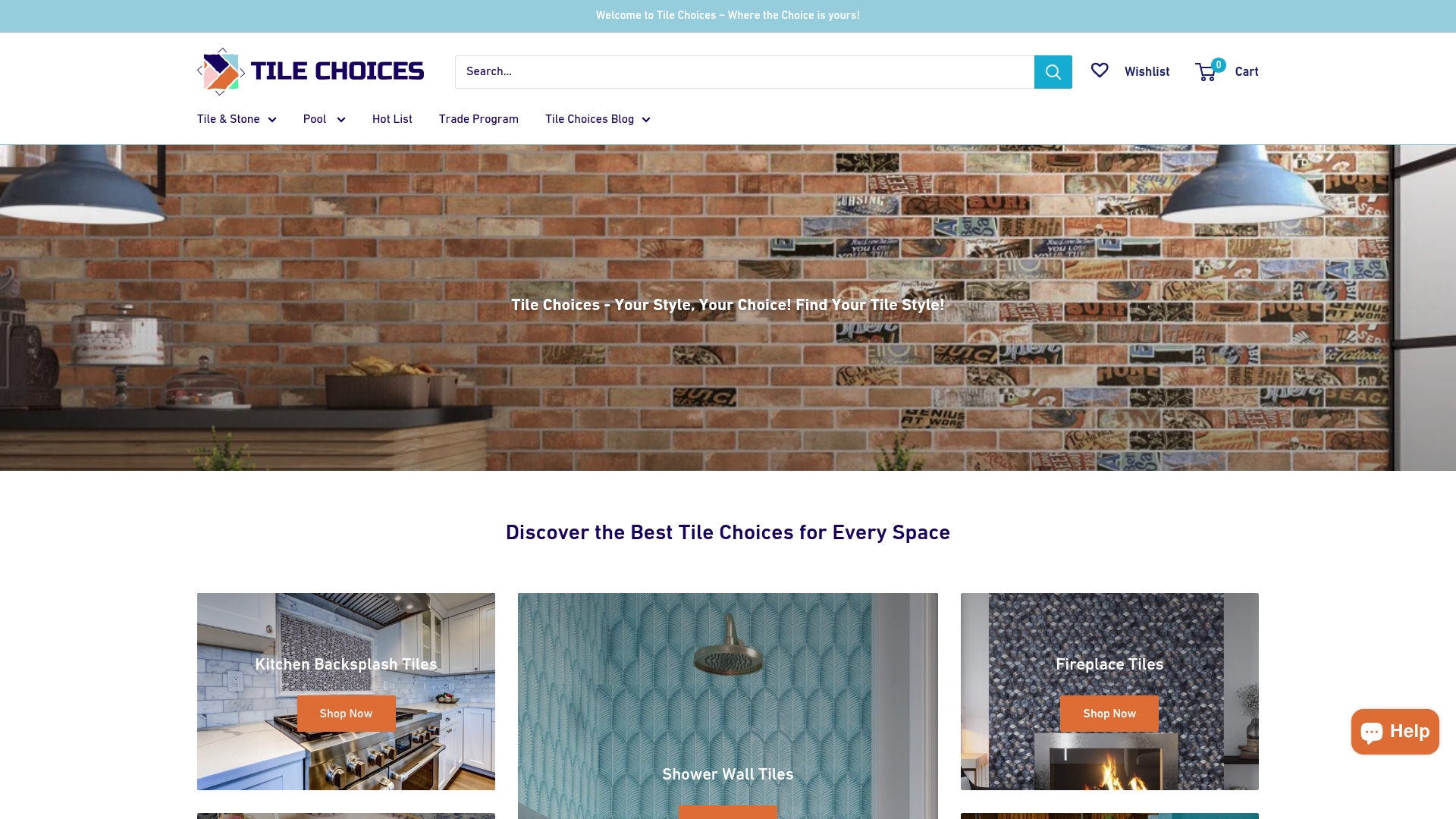
Explore the curated collection of porcelain wood plank tiles at TileChoices.com and discover options perfect for kitchens, bathrooms, living rooms, and commercial settings. If you need help getting started or want to compare your tile choices, see our guide to the best tiles for high-traffic areas for more ideas. Every selection comes with detailed info, sample requests, and expert support built in. Shop now to secure your favorite designs while supplies last and start your next project with confidence.
Frequently Asked Questions
What are porcelain wood plank tiles?
Porcelain wood plank tiles are specialized flooring tiles designed to replicate the look and feel of natural wood while providing the durability and low maintenance characteristics of porcelain ceramics.
How are porcelain wood plank tiles made?
These tiles are created using advanced digital printing technologies that mimic wood grain patterns, followed by a kiln-firing process at high temperatures to produce a dense and robust material.
What are the benefits of using porcelain wood plank tiles over traditional wood flooring?
Porcelain wood plank tiles offer superior durability, moisture resistance, and low maintenance compared to traditional wood flooring, making them ideal for high-traffic and moisture-prone areas.
Can porcelain wood plank tiles be used outdoors?
Yes, porcelain wood plank tiles are suitable for both indoor and outdoor applications due to their environmental adaptability and resistance to elements like moisture and scratches.

